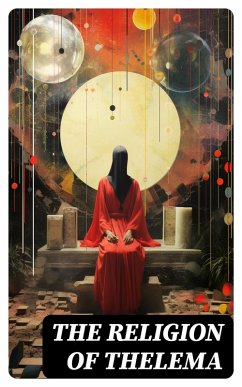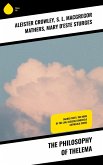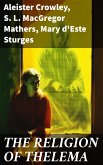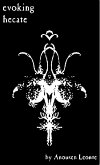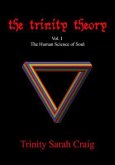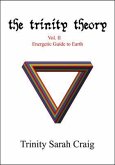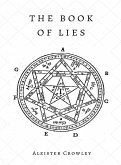THE RELIGION OF THELEMA is an anthology that delves deep into the esoteric and mystical tradition of Thelema, invoking a tapestry of philosophical inquiry, ritualistic elements, and lyrical explorations. This collection brings together an array of writings that not only outline Thelema's foundational tenets but also invite readers into a multi-faceted dialogue on spirituality and self-discovery. Encompassing diverse literary styles-ranging from the poetic to the polemic-this anthology offers pieces that illuminate the transcendent yet pragmatic aspects of Thelemic practice and belief. The inclusion of key texts serves as focal points that anchor the reader's journey through this labyrinth of metaphysical and mystical exploration. The contributors, Aleister Crowley, S. L. MacGregor Mathers, and Mary d'Este Sturges, are pivotal figures in the shaping of modern esotericism. Together, their works map a compelling landscape of the early 20th-century mystical renaissance, inducing shifts in the cultural and religious narrative of the time. Crowley, renowned for his profound impact on Western esoteric traditions, alongside Mathers' and Sturges' innovative insights, enrich the discussion on the interconnectedness of mysticism, science, and art. Their collective contributions within this anthology reflect diverse approaches to Thelemic philosophy, inspiring a holistic comprehension of its spiritual fabric. Offering a compendium of varied perspectives and literary styles, THE RELIGION OF THELEMA is a must-read for those seeking to understand the intricate web of modern occult philosophies. The anthology stands as both an introduction and an in-depth study, lending readers a rare opportunity to engage with profound esoteric teachings. Embark on a journey through this collection to uncover not merely the tenets of Thelema but the spirit of inquiry that fuels its enduring legacy. Beyond pure intellectual engagement, this anthology invites readers to ponder the very nature of their spiritual paths, fostering both self-reflection and scholarly dialogue.
Dieser Download kann aus rechtlichen Gründen nur mit Rechnungsadresse in A, B, BG, CY, CZ, D, DK, EW, FIN, F, GR, H, IRL, I, LT, L, LR, M, NL, PL, P, R, S, SLO, SK ausgeliefert werden.

